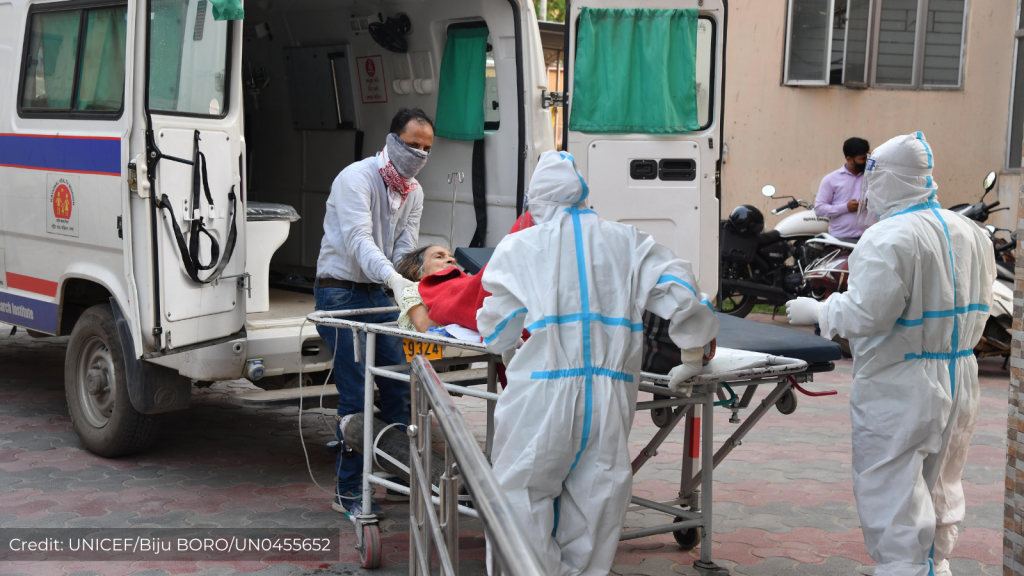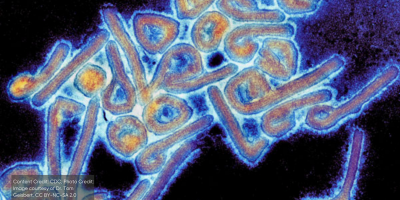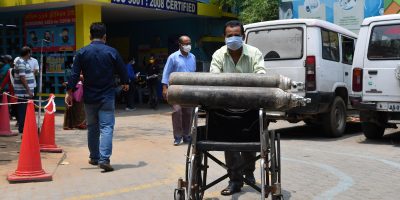As the cycle of COVID-19 waves and emergent variants continues, there is an urgent need for India’s government and public health responders to learn from the most recent deadly second wave. In fact, recent reports are just starting to confirm the full extent of deaths and underreporting that masked the toll of the second wave. The second wave has also triggered a fresh wave of unemployment in the country; over 20 million jobs were lost in April and May.
The reasons behind India’s deadly second wave such as unheeded scientific warnings, mass gatherings, slow vaccination are topics of public debate and scrutiny on this context of systemic failures. Systemic failures included low public spending on healthcare, fatality undercounting, and amended rules on foreign aid affecting charities who were involved in rapid response on the ground.
What compounded this situation was poor coordination between the states and central government, which lead to policy paralysis. For example, several states were unsure about an adequate supply of vaccines from the national government-issued global tenders. After much criticism, the Government of India finally centralised the procurement of vaccines to supply them free to state governments.
But the real question is what needs to be done going forward:
- The incidence and scale of the second wave were exacerbated by systemic issues that compounded its effects, such as gross neglect and underinvestment in the public health system. There is an urgent need to rapidly scale up oxygen capacity, ensure essential emergency and critical care, and stabilise the supply of medicines.
- Lack of data transparency led to underreporting and undercounting of both cases and deaths, with severe implications for an effective and proportionate response. Data on testing, active cases, hotspots, deaths, including the availability of medical facilities and vaccination “can be pulled into a National Surveillance Dashboard to give a real-time feed of the virus trails, improving forecasting accuracy and enabling officials to make data-driven decisions.”
- A one-size-fits-all approach to the COVID-19 response does not meet the diverse needs and contexts. Community- and district-level working groups should be empowered to respond locally, receive government funds, and coordinate the local health system.
- The vaccine roll-out has been patchy, partly privatised, and inaccessible for those who lack access to the internet and smartphones. The Government should provide vaccines free of cost to all age groups and use appropriate communication modes to reach vulnerable groups. As of 25th July 2021, just 8% of the Indian population had been fully vaccinated, while an additional 18% have been partially vaccinated.
- To deliver an effective response, active collaboration between civil society and the Government is required. Various civil society organisations stepped up to help with critical care provision. However, their activities were severely hampered due to limited access to funds, mainly because of the stringent Foreign Contribution (Regulation) Act (FCRA) conditions that prevent organisations from accessing foreign funds. To facilitate this move, the government will need to withdraw FCRA regulations without delay.
- To ease the distress and suffering of marginalised and vulnerable groups as well as migrant and informal labourers, opportunities for robust livelihoods recovery must be found and linked with the Mahatma Gandhi National Rural Employment Guarantee Act (MGNREGA), which has helped lift people out of poverty in the past. These groups also need guaranteed social protection in terms of food (especially for children) and basic income.
- Rather than treat COVID-19 as a public health disaster, the national and some state governments treated the pandemic as a law-and-order problem, criminalising dissent, using force, imprisoning critics, journalists, and those who failed to comply with the stringent lockdown rule undermining democratic values and human rights. Constitutional values of the right to speech and dissent must be upheld.
- A formal commission of inquiry must be set up to investigate every aspect of COVID-19 response in India from the beginning of the pandemic, including the sudden lockdown, the flawed vaccine policy, the mobilization of resources through PM-CARES (the Prime Minister’s fund), allocation of medical supplies between and across states, and data collation practices on tests, recovery, and morbidity.
- At the global level, vaccine equity is urgently needed to prevent future waves in India and other LMICs. The international community must urgently waive intellectual property rights to COVID-19 vaccines so that vaccine production can be decentralised and production capacity can be ramped up. Vaccines are public goods and should not be left to private mechanisms.
In response to the pandemic, short-, medium-, and long-term measures are required. While short-term measures should focus on immediate relief, provision of critical care and equitable and universal vaccine roll-out, medium- and long-term measures must build robust processes to deliver effective responses and guarantee rights to basic needs such as food, water, health, jobs, and shelter.
Time is of the essence, as there is a critical need to avoid future waves of COVID-19 not only in India but across the world.





